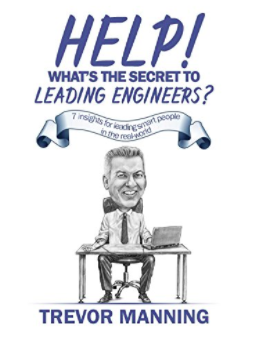 Becoming a supervisor or manager in the high-tech industry usually begins at the end of a technical path. After demonstrating proficiency in a technical role — design, applications or product engineering, for example — the individual contributor is promoted into a management role, rarely with any training in management or leadership.
Becoming a supervisor or manager in the high-tech industry usually begins at the end of a technical path. After demonstrating proficiency in a technical role — design, applications or product engineering, for example — the individual contributor is promoted into a management role, rarely with any training in management or leadership.
The transition from technical contributor to leader is fraught with challenges, as good leadership is as much about the soft skills as getting things done and technical expertise. Each of us has probably seen such transitions go woefully badly.
Recognizing the challenge of good leadership, Trevor Manning, himself a graduate of the engineering ranks, wrote Help! What’s the Secret to Leading Engineers?. It’s a short, readable book with seven insights about leadership, providing a philosophy for the new leader — even ideas to enlighten the most experienced executive.
Earlier this year, I had the opportunity to speak with Trevor Manning, to explore his ideas about leadership. Listen to our conversation.
A manager, not a boss
Manning begins with the concept that knowledge workers don’t want a “boss,” yet they do want a “manager.” The old-style boss told his staff what to do and when to do it. We want today’s manager to choreograph her team’s diverse skills in a dance that successfully creates business value — technology, products, shipments, yield, profits — while helping each person on the team develop his or her skills and career.
Moving up the organizational hierarchy, managers know less and less about the technology than the knowledge workers they manage. Manning writes “most bosses have no idea about what their employees actually do.” Recognizing this, an effective leader must approach the role with humility and be comfortable with being wrong. The manager whose ego insists on being the smartest person in the room won’t yield the success possible from the organization.
People are not programmable
Organizational goals are accomplished by teams of people working together, and each member of a team has a unique personality and diverse motivations. A successful leader respects the uniqueness of each person and, unlike software, recognizes a person is not “programmable.”
The leader must emotionally connect her team to the future the organization wants to create, healthily channeling the inevitable conflict that arises and navigating the constant changes in the business environment and shifting organizational priorities. The most talented leader builds commitment, so the team feels accountable for the goals of the business, even though these goals are beyond the responsibility of any one person.
Manage your boss
Manning’s discussion of “managing your boss” is one of the topics I found particularly enlightening. It’s been a practice I have resisted throughout my career. He argues “it is not in your best interest that your boss fails, especially if the failure is caused by you.” His prescription is not to literally manage your boss, rather to engage your boss in what you are doing, in a give-and-take to ensure common expectations.
He also advises leaders to “establish influence, two levels up and across the organization, as a minimum.” This can provide insight into the environment and expectations your boss is facing, helping you better understand organizational dynamics and perceptions.
With thousands of books published about leadership, I recommend reading Help! What’s the Secret to Leading Engineers?. Whether you are a new manager or a seasoned executive, you’ll find Manning’s discussion thoughtful and insightful, helping improve your leadership skills.

